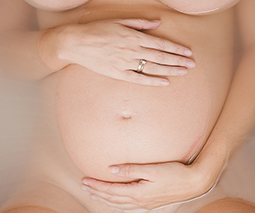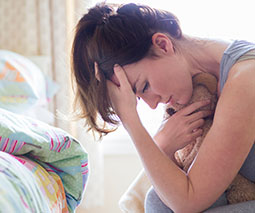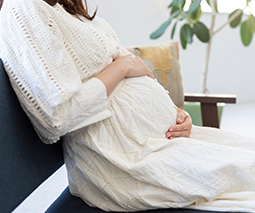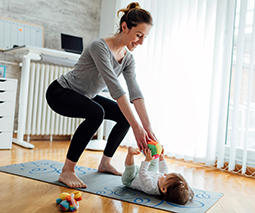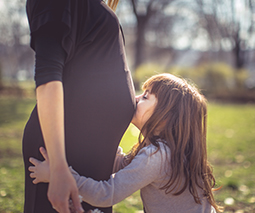Keep calm and bump on? The truth about stress and pregnancy
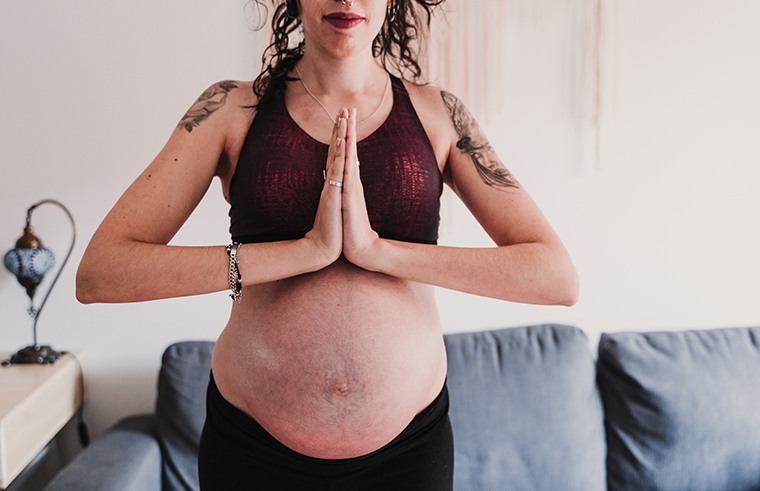
Everyone knows that when you’re expecting a baby you need to avoid stress and aim for calm, but why is this exactly? And how do you actually know when you’re stressing out?
Here’s the lowdown, plus some tips for how to keep yourself (and your growing bub!) in the chill zone.
Why stress is so bad
First up, it’s completely normal to feel a bit stressed when you’re pregnant. It’s a big responsibility carrying and growing a child, after all. Your body is constantly changing, the birth is impending and there are lots of things to organise before your little one arrives.
A little stress is not going to be too much of a drama, but if you’re consistently feeling overwhelmed or experiencing high levels of anxiety every day, then it can create problems.
It’s thought that stress hormones pass from mother to placenta, causing a variety of changes in the growing baby. Some outcomes of consistent, sustained anxiety during pregnancy can include:
- An increased risk of premature birth or low-birthweight babies
- Increased behavioural problems throughout childhood
- An increased susceptibility to asthma and allergies during childhood
- Higher rates of hospitalisation for infectious diseases like respiratory illness and gastroenteritis.
That said, it’s important to note that early intervention can head all this off at the pass, and reducing stress to manageable levels results in healthy and happy mums and babies.
Signs you need to stress less
Not sure if you’re tipping the scale in the stress department? Here are some commons signs to look out for when you’re pregnant, indicating you should regroup and slow things down:
- You feel constantly on edge, worried or anxious
- You’re having trouble sleeping or eating
- You find it hard to relax or calm down
- You feel overwhelmed by daily tasks and to-do lists
- You feel very low in energy
- You’re in a constant state of frantic busyness
- You’re having panic attacks
- Your muscles are tense
- You have recurring thoughts that won’t go away
Tips for a stress-free pregnancy
While every woman and their circumstances are different, here are some simple ways to help reduce stress and anxiety during pregnancy:
- Avoid other massive life changes – If possible, don’t embark on anything big. Moving house, renovating or changing jobs are best avoided, if possible. If such changes are unavoidable for you, then ensure you have plenty of support to help keep the stress down.
- Cut back on work – Reduce your hours if circumstances allow and if possible, don’t work right up until your due date. Try to finish work at least four to six weeks prior to the birth to give yourself some breathing space and time to rest before bub arrives.
- Ask for help – Ask your partner to do more around the house; reach out to family and friends when you need it (particularly if you have other children); and talk to a financial counsellor if you have financial pressures.
- Work on your relationships – Conflict with your partner or a family member can be incredibly stressful. Focus on respectful, clear communication – and seek external help such as counselling if need be.
- Look after yourself – Eat well, drink lots of water, get plenty of sleep and do moderate exercise to keep in optimal condition. Remember to take time out to do things you enjoy – like getting your nails done, spending an afternoon reading in bed, or taking time to catch up with friends.
- Try natural therapies – Meditation, massage therapy and acupuncture are three proven ways to help you relax.
- Address your baby concerns – Prep the nursery with the basics; read up on birth and parenting a newborn; join online parenting groups or forums; chat to your trusty health professional and/or other mums about life with a baby.
- Boost your zen – For some extra chill vibes try listening to gentle music to help you wind down; sip chamomile tea and read a book in a quiet place to reduce over-stimulation; or rub magnesium oils or creams on your legs before bed, which can help relieve restless leg syndrome.
Is it stress or actual anxiety?
One last important note on anxiety and/or depression in pregnancy. If you feel that your general stress is turning into something more serious, such as anxiety or depression, it is super important that you reach out for help before it gets out of hand.
The Royal Women’s Hospital Victoria website says about 15 percent of women will have depression or anxiety during pregnancy, so you are definitely not alone. The more we talk about it, the more women can start to recognise the signs and seek help.
It’s important to keep your doctor, midwife or obstetrician up to date on your levels of stress. Feel free to be honest about your mental health with your pregnancy health providers – there are a number of ways they can help you through this stressful time, but only if they know that you’re struggling.
If you – or someone you know – are expecting a baby or have recently become a parent, and are finding things really tough, you can also get in touch with PANDA. They’re on standby, ready to support mums and dads through difficult times.
 Join the Bump and Baby: The Fourth Trimester online event! With live expert sessions, FREE newborn routine guide & the chance to WIN a $500 Nursery gift voucher. Click here to find out more and make sure you don’t miss a thing!
Join the Bump and Baby: The Fourth Trimester online event! With live expert sessions, FREE newborn routine guide & the chance to WIN a $500 Nursery gift voucher. Click here to find out more and make sure you don’t miss a thing!

